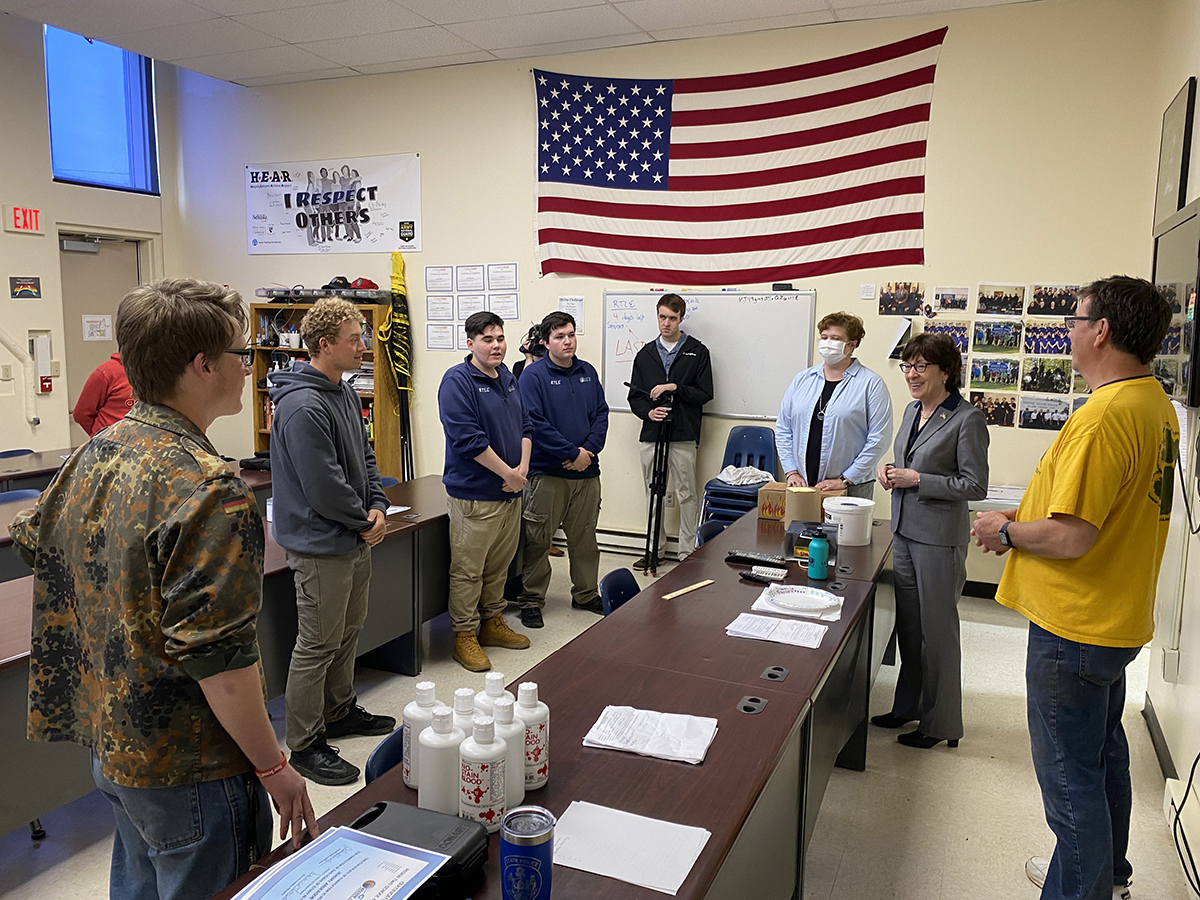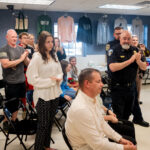
HOULTON, Maine – U.S. Sen. Susan Collins, R-Maine visited the Region Two School of Applied Technology in Houlton on June 1.
Collins received a tour of each classroom to meet the instructors, support staff, and students and learn about their individual programs, which include: culinary arts, welding, law enforcement, residential electrical, plumbing and heating, automotive technology, auto collision, early childhood education, certified nursing assistant, phlebotomy, and forestry.
“Job training programs are proven, successful tools that help young people prepare for rewarding careers in high-demand fields,” said Collins. “I enjoyed touring Houlton’s Region Two School of Applied Technology and learning about the impressive programs that are helping students gain the skills they need. These hands-on job training programs simultaneously open doors to good-paying jobs for students while helping to address workforce shortages by making it easier for businesses to find qualified workers.”
Houlton’s Region Two School of Applied Technology serves students in grades 9-12 in good academic standing from five sending schools (East Grand, Hodgdon, Houlton, Katahdin, and Southern Aroostook). Students have the opportunity to earn technical skills, work-ready certifications, and college credits in their chosen career fields. Due to the large geographical area served by Region Two, students attend the CTE program every other day and their sending school on alternate days. There are currently 177 students attending Region Two from 32 surrounding communities.
Collins is a strong supporter of funding for Career and Technical Education programs, which are proven, successful tools that help people gain the skills they need for rewarding careers. As a senior appropriator, she helped secure $1.38 billion for Perkins CTE State Grants in the Fiscal Year 2022 omnibus funding law, including $6.72 million for Maine. These grants are critical to high schools, community colleges, small businesses, and students who need training opportunities to help close the skills gap in the workforce.
Last year, Collins introduced the Gateway to Careers Act, bipartisan legislation that would support partnerships between community and technical colleges and workforce development partners such as state workforce development boards, industry associations, and community-based organizations.







